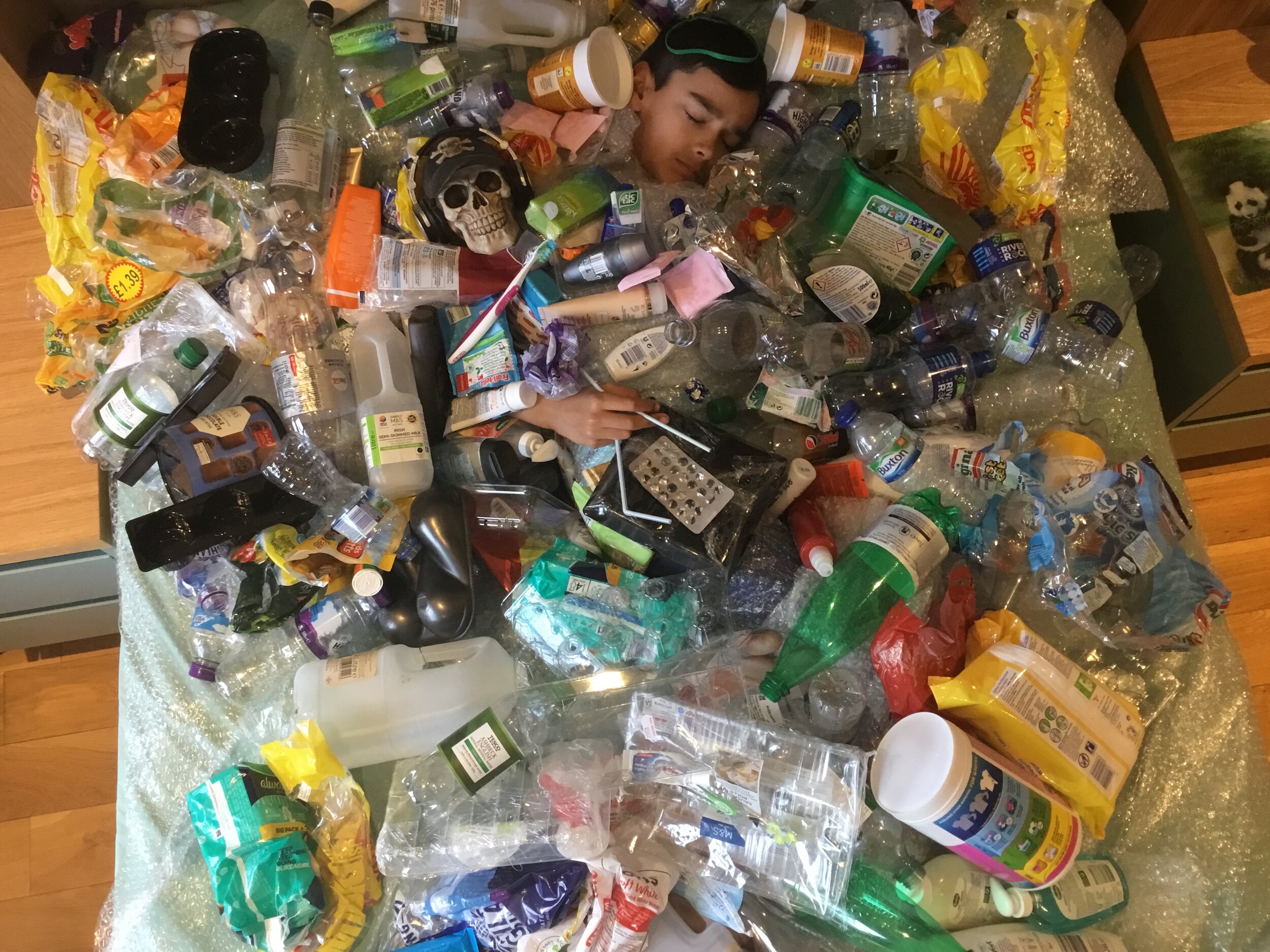YRE Competition 2021
1st Place as LLC a single photo campaign
11-25 years old
Although it seems false, this is what happens to some fish… Save the ocean, say no to plastic!
Although it seems false, this is what happens to some fish… Save the ocean, say no to plastic!

This photo demonstrates, not only the importance of taking care of New Zealand's delicate flora but also the need to keep our ocean plastic-free to avoid dirty water. If we don't, we'll end up with a world dominated by plastic. Although our planet is feeling the pressure, there is still time to turn things around! There is hope for us yet but everyone needs to do their part. We could do as little as spreading the word, or as big as organising a strike. We must stop neglecting our earth, and start protecting it! Our generation needs to be part of the solution and not part of the pollution. Protect our plants and our water before we end up trapped.
Shanaiya

We have the option of a responsible consumption when buying our fruit and vegetables, if we want to reduce single-use plastic and save our planet and our seas.


Our future is turning into waste - let's help this hourglass turn upside down. Our time is running out; let's reduce the amount of plastic that we use!

Strolling around St Thomas Bay in Marsascala is a treat. But what is the view from this bench? After the weekend, near this bench all you could see was rubbish! Pizza box, wrappers, beer cans and soft drink bottles. Why? The Maltese should be ‘staying home’ but some people are still going out and eating their ‘take-aways’ out in the fresh air. What they are NOT doing is disposing of their litter properly! All that rubbish can easily blow away in the sea! The disgrace of it all? The Marsaskala Local Council have installed bins near EVERY BENCH! As you can see from the photos, there are bins everywhere so there is NO excuse not to dispose of the waste properly! Thumbs Up for the Local Council of Marsascala! Thumbs Down to the public who have forgotten how to use bins during this pandemic!
Recycling saves earth's resources, provides work to many people mainly in the unorganized sector, and can be a profitable business too! Material like glass and metal can be melted, reshaped and recycled. They could be repurposed and also up-cycled into useful products. Segregated waste material helps in ensuring its efficient use.

Remember those times, the simpler times appearing in our grandmothers stories? When dividing a whole loaf into slices was quite an event, ceremoniously performed around the table right before lunch.
A mere orchard became a heavy-laden cornucopia, brimming with presents no one occured to dump. Times where food was cherished, honored and lovingly crafted.
Free of guilt, free of poison, and of wrappings used just once.
Times almost forgotten.
Times we could have back.

This snail’s natural habitat is supposed to be surrounded by plants and other animals and not waste. The overuse of plastics and their careless disposal into our environment is leading to it having extensively infiltrated our food chain and natural spaces. Moreover, animals such as this snail are ending up in the wrong place such as in this case, the plastic bottle, and are eventually left to die.

400 million tons of plastic are produced worldwide every year. The problem with plastic is that it doesn't rot. Instead it hangs around in the environment for hundreds of years polluting our land and oceans, killing our wildlife and poisoning our food chains.
The problem is that far too many of us are ignoring the problem!
This photograph is a visual metaphor of how denial and nonchalance are permitting us to "sleep easy" while persistent plastic pollutants are burying our planet alive. This is not a dream...this is reality and it's time to wake up and face the problem of plastic before it becomes our nightmare!

In Slovakia, 80 percent of waste ends up in landfills or incinerators. Let´s take Sweden as an example. There it is just one percent.

I’ve been surfing for two years and the feeling is incredible! The control of the waves, the contact with nature in its purest and wildest state. Besides surfing I like to photograph nature . I worry about the remains of fishing nets as well as the uncontrolled capture of octopuses and mussels.
At school, in one of the awareness sessions of Eco-Schools, we were told about the problem of marine litter. It made me wonder if my beach would be at risk, and I decided to explore.
These photographs were taken on the beach where I usually go surfing and although they are real garbage sculptures, most of all they are rubbish on a beach. Later I returned to the beach and the sculptures disappeared…to the sea…
The sea is mine, is yours, it belongs to EVERYONE! The conservation must be our priority, OUR WAVE!
